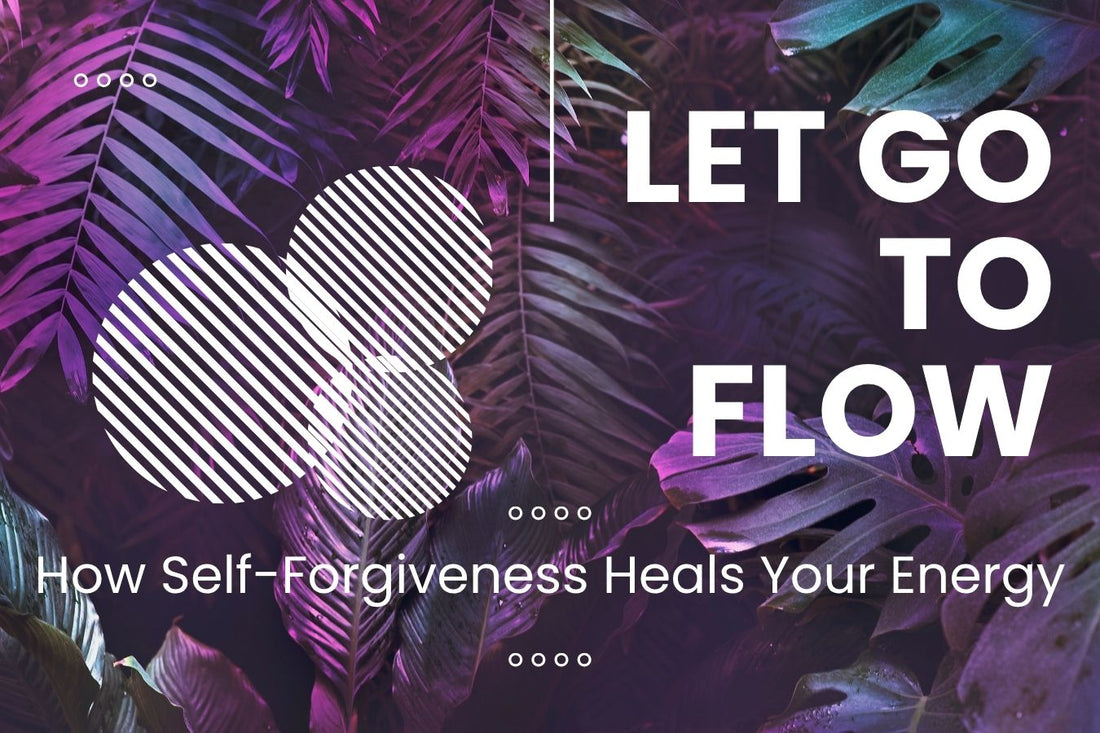
Letting Go to Glow: How Self-Forgiveness Heals Your Energy
Share
Forgiveness is often talked about in relation to others, but what about the forgiveness we owe ourselves? Self-forgiveness isn’t about excusing mistakes, it’s about releasing the grip of guilt, shame, and self-blame so we can reclaim our energy and thrive. When we hold onto unforgiveness, it’s like carrying a heavy backpack that slows us down in life, relationships, and personal growth. In this post, we’ll explore why self-forgiveness matters, the energetic consequences of withholding it, and reflective questions to guide your journey.
Why Self-Forgiveness Matters
Release of Emotional Burden: Carrying guilt and self-blame is exhausting. Forgiving yourself is like setting that backpack down—it frees space for peace, clarity, and emotional ease.
Embracing Imperfection: None of us are perfect. Self-forgiveness is a gentle reminder that mistakes are part of being human. It opens the door to self-compassion and unconditional self-love.
Healing and Growth: Forgiveness is a catalyst for personal transformation. Letting go of resentment and regret creates room for emotional healing and new growth to flourish.
Energetic Harmony: When you forgive yourself, your energy flows more freely. Blocked emotions and stagnant energy start to dissolve, leaving your mind, body, and spirit in better alignment.
Energetic Consequences of Not Forgiving Ourselves
Blocked Energy Flow: Holding onto guilt and shame stagnates your energy. This can create blockages in your chakras, disrupting the natural flow of life force and leaving you feeling stuck.
Lowered Vibration: Unforgiveness weighs on your vibration. It can trigger stress, anxiety, or even physical ailments, keeping you from living in a state of vitality and joy.
Self-Sabotage: When you can’t forgive yourself, patterns of self-sabotage often arise. You might unconsciously recreate situations that mirror unresolved shame or guilt.
Strained Relationships: Carrying unforgiveness can spill into your interactions, creating tension, misunderstandings, and challenges in connecting authentically with others.
Reflective Questions for Self-Forgiveness
-
What specific event or decision am I struggling to forgive myself for?
-
Which emotions or beliefs about myself are tied to this unforgiveness?
-
How has holding onto guilt or shame affected my emotional and physical well-being?
-
What could self-forgiveness bring to my life in terms of growth, peace, and emotional healing?
-
What steps can I take today to begin forgiving myself and continue nurturing this practice?
Self-forgiveness is more than a mindset, it’s an energetic reset. When you release self-blame and guilt, you clear stagnant energy, lift your vibration, and open your heart to growth, love, and joy. It’s not always easy, but each step toward self-forgiveness is a step toward living lighter, brighter, and more aligned with your true self.
Remember: letting go isn’t weakness, it’s the path to reclaiming your inner glow.
Moving Forward with Compassion
Self-forgiveness is an act of profound self-love. By embracing it, you release burdens, nurture self-compassion, and restore harmony within your energy system. To support your journey, consider pairing reflection with practical tools: the Harmony Shadow Work Journal guides you through heart-centered self-exploration, while the Solar Plexus Chakra Healing Bundle empowers your personal strength, confidence, and vitality. Together, these resources help you step fully into your energetic balance, emotional freedom, and the empowered life you deserve.
